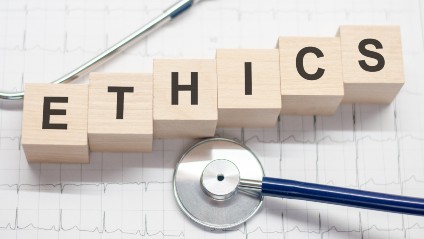Professional ethics in medicine

An influential approach which prescribes ideal ends (and thus norms and internal goods) of medicine based upon virtue ethics has been advanced by Pellegrino and Thomasma. Within this approach, based upon Alisdair MacIntyre’s virtue ethics, medicine can be considered a “moral practice” with virtues describing character traits required of doctors in addition to the “medical scientific knowledge, practical skills and experience that ensures that the doctor does the right things with the right attitude in order to reach the goals of medicine.” Medicine is a moral practice by MacIntyre’s definition because as a profession it self-governs, defines, and upholds internal standards of good medical care and accreditation processes to uphold these standards.
Read more
The telos of a practice can be understood through critical examination of its internal goods or norms of evaluation; for medicine, these norms can be found in the doctor-patient relationship. As seen in this relationship, “the ends of medicine are...the restoration or improvement of health and, more proximately, to heal, that is, to cure illness and disease or, when this is not possible, to care for and help the patient to live with residual pain, discomfort or disability.” The doctor-patient relationship, understood as a type of “healing relationship,” is the primary mechanism through which these ends are realised.
Treating medicine as a moral practice with norms of good practice realised through a healing relationship is not to adapt an antiquated view of medicine as a paternalistic patient-provider relationship. Rather, the healing relationship involves both clinical interventions and information or services provided to patients for the sake of knowledge, empowerment or self-care. Even in modern clinical encounters with patients ‘empowered’ with democratised access to medical information, personal values and lived experience with disease, the doctor as an ideal-type ‘role’ requiring certain technical expertise and professional training is beyond question—the point of contention is rather whether this expertise should be deferred to without challenge.


